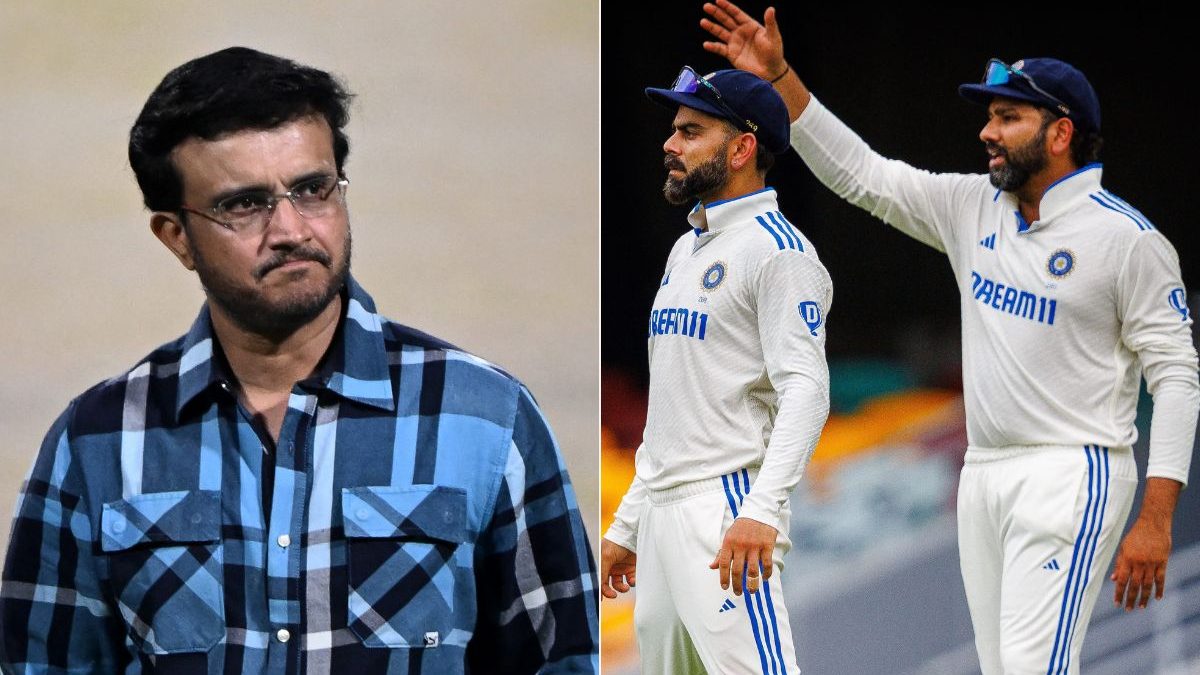

Sourav Ganguly, the former India captain and BCCI President, recently revealed fascinating insights into Rohit Sharma's appointment as Test captain after Virat Kohli stepped down. According to Ganguly, Rohit was initially reluctant to take on the leadership role in Test cricket due to concerns about his workload. This revelation sheds light on the behind-the-scenes discussions and considerations that led to Rohit's eventual acceptance of the captaincy.
Kohli's decision to relinquish the Test captaincy in January 2022, after the series in South Africa, created a significant void in Indian cricket. Kohli had an impressive run as Test captain, and his departure necessitated a strong and experienced leader to take the reins. The BCCI naturally turned to Rohit Sharma, who was already captaining the national side in limited-overs formats and had proven his leadership capabilities with Mumbai Indians in the IPL.
However, convincing Rohit wasn't a straightforward task. Ganguly, in an interview with PTI, explained that Rohit was hesitant to take on the additional responsibility of Test captaincy, primarily because of the already heavy workload associated with leading the team in ODIs and T20s. Managing workload is a critical aspect of modern cricket, with players often needing to balance the demands of international cricket with franchise commitments and personal time.
Ganguly recalled a crucial conversation he had with Rohit, emphasizing the significance of captaining India in Test matches and the legacy he would leave behind. Ganguly told Rohit that he shouldn't want to finish his career without captaining the Indian Test team. This appeal struck a chord with Rohit, prompting him to reconsider his initial reluctance. After taking a couple of days to contemplate, Rohit agreed to take on the Test captaincy.
Rohit Sharma's tenure as Test captain began officially with the home series against Sri Lanka in March 2022. He led India in 24 Tests, securing 12 wins, facing nine defeats, and drawing three matches. Under his leadership, India reached the World Test Championship final in 2023. He also distinguished himself as only the second captain, after MS Dhoni, to draw a series in South Africa, showcasing his tactical acumen and leadership skills in challenging conditions.
However, Rohit's journey as Test captain wasn't without its challenges. After a series of losses, Rohit retired from Test cricket ahead of the tour of England, with Shubman Gill stepping in.
Despite the relatively short duration of his captaincy, Rohit Sharma made a significant impact on Indian Test cricket. His leadership, combined with his experience and adaptability, helped the team navigate a transition period after Kohli's departure. Ganguly's role in convincing Rohit to accept the captaincy highlights the importance of communication and understanding in team management, ensuring that key players are motivated and ready to take on crucial roles for the benefit of the team.